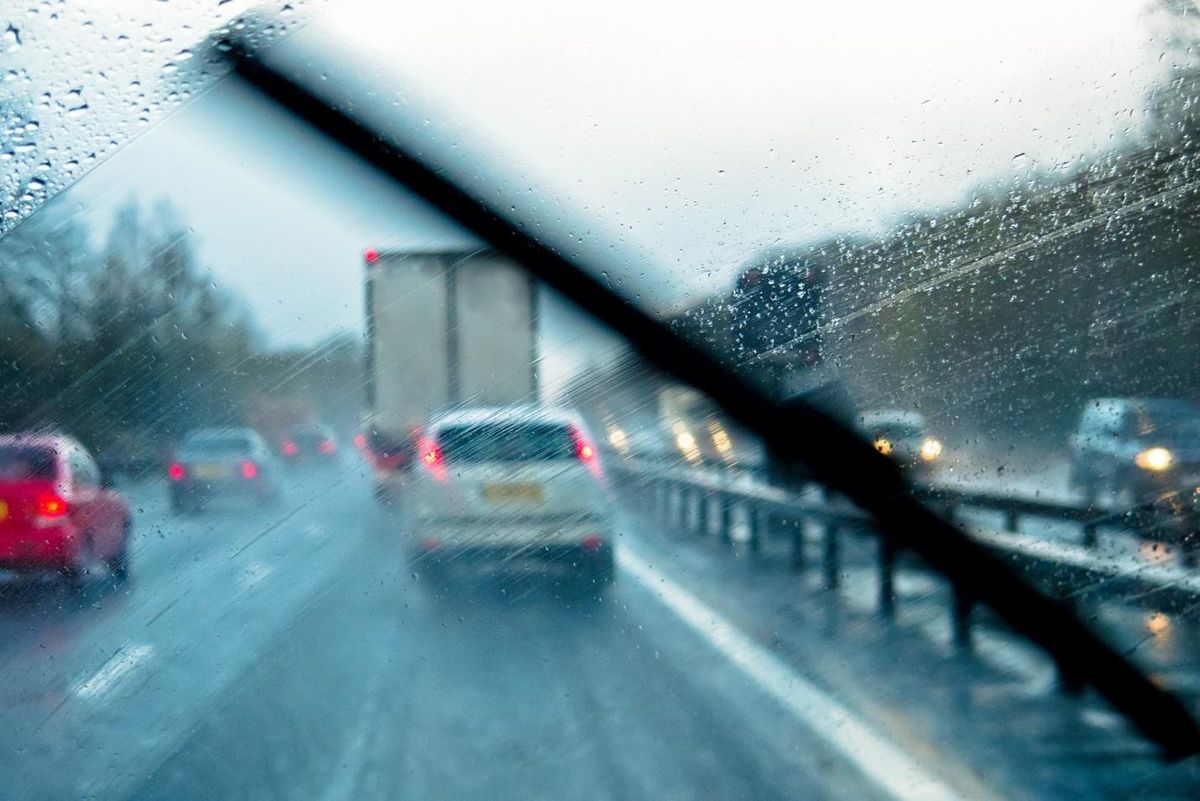
Easing Your Wet Weather Woes
April 18, 2022
When it rains, it pours – but it doesn’t have to disrupt your commute. If you are wary of wet weather conditions, you are not alone, and Penske Truck Rental can help.
Read on for tips to ease your wet weather woes, courtesy of our friends at AAA.
As with most things, safe driving in wet weather starts before you ever hit the road. Making sure your Penske rental truck or personal vehicle is in good shape is a great place to start.
Before driving:
- Check that your windshield wipers are in working order, replacing pieces that are worn to ensure optimal visibility in a downpour.
- Be certain that all your signal lights are fully operational and always use headlights when driving. Ensuring that other drivers can see you on the road is a crucial step toward preventing unnecessary accidents.
- Check your tires. Tires with sufficient tread depth and air pressure are crucial to sustaining safe traction on roadways. All drivers are encouraged to check these values regularly.
While driving:
- Drive slowly. This might seem obvious, but it’s worth mentioning as it can make all the difference when driving in the rain. Reducing speed on wet roads helps tires to maintain contact with the road, thus lowering the chances of hydroplaning. It is especially important to reduce speed before navigating turns and gradually return to normal speed after.
- Avoid using cruise control. While it can be a useful tool for long drives in dry weather, you’ll want to be fully in control of your vehicle when roads are wet.
- Steer clear of lanes and surfaces where collection of water can be observed.
- Keep a safe distance. Having some distance between you and the vehicle in front of you can be the difference between a minor mishap and a major accident.
- Consider the size and weight of your vehicle. Larger vehicles, in addition to being greater in size and weight, also require greater stopping distances. This is especially true on wet roads.
- If you’ve followed all these precautions and still encounter a skid, don’t fret. Once you notice your vehicle starting to skid, take your foot off the accelerator and brake and focus your eyes and your wheels in the direction you want to go. Resist the temptation to slam on the brakes; instead, focus on regaining control of the vehicle before gradually pumping the brakes. Braking before regaining control of the vehicle can make matters worse.
So remember to follow these tips to ensure safe and stress-free rainy day travels.
For more safe driving tips, visit our website.
By Maranda Miller